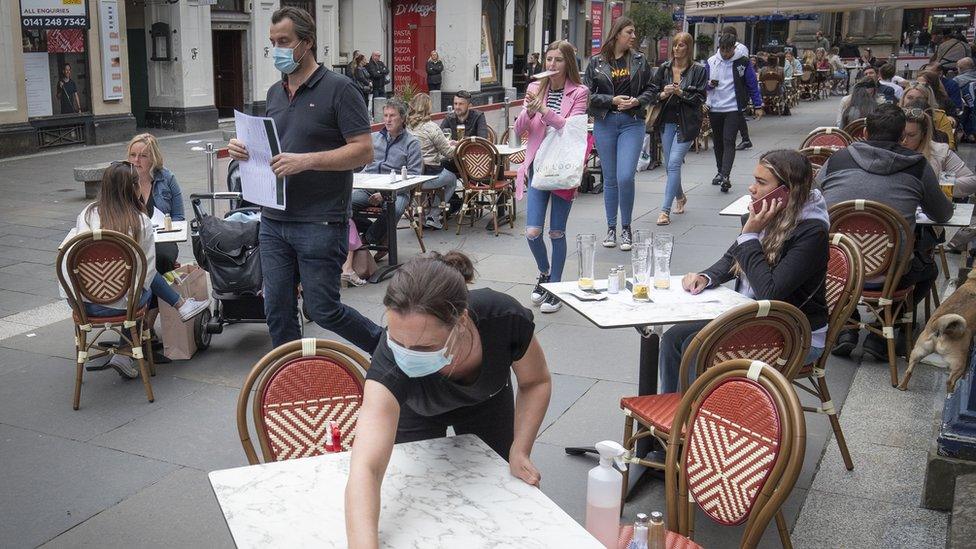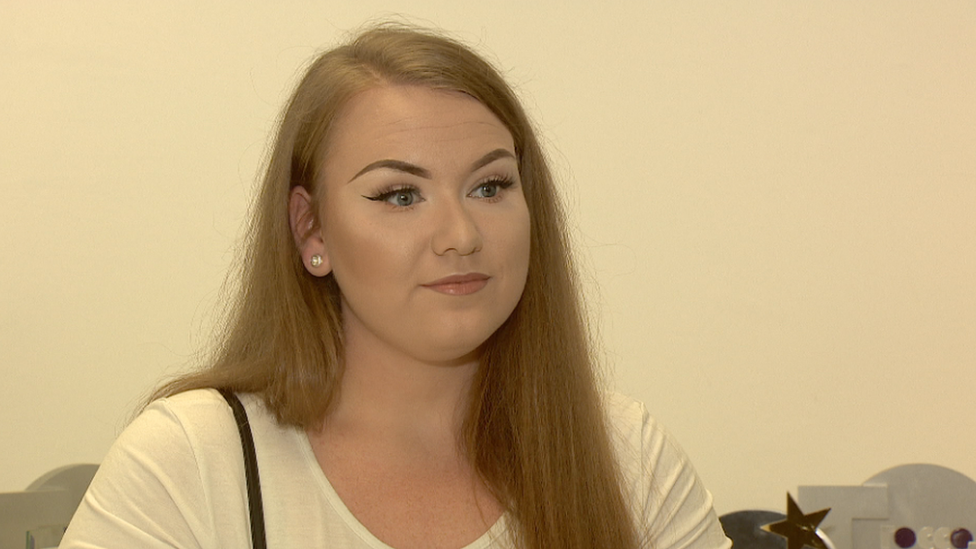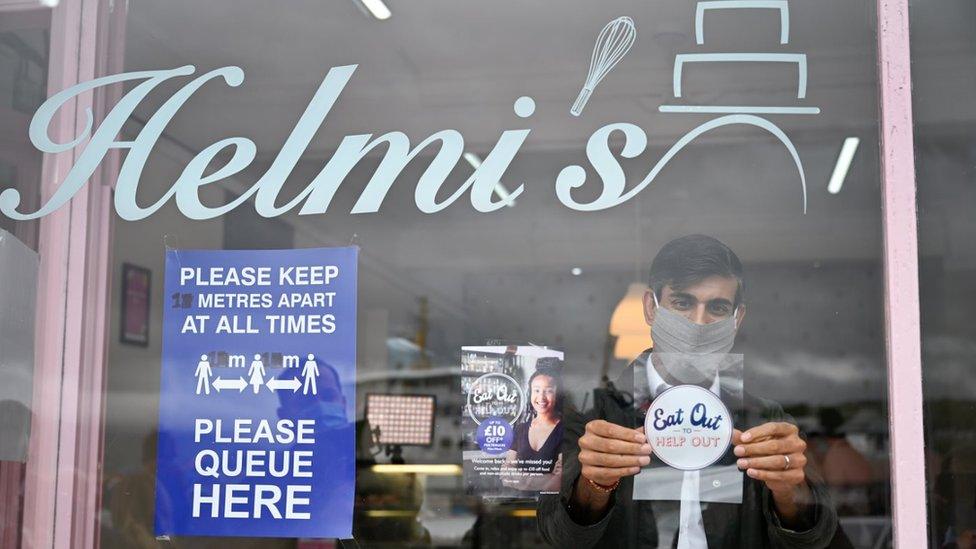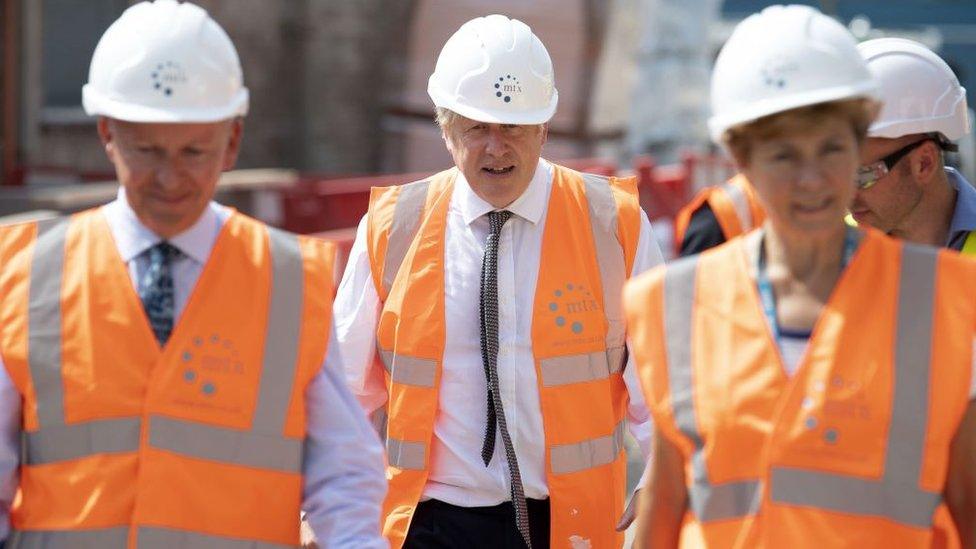Employment in Scotland down 15,000 during lockdown
- Published

The number of people in work in Scotland fell by 15,000 between April and June as the impact of lockdown hit, according to the latest figures.
The proportion of people aged 16 to 64 in employment fell over the quarter to 74.3% (2.65 million), data from the Office for National Statistics (ONS) indicates.
The unemployment rate rose to 4.5% with 124,000 people out of work.
This was higher than the UK unemployment rate of 3.9%.
The number of people aged over 16 in employment in Scotland fell by 15,000 over the quarter while the number of people classed as "out of work" rose by 11,000.
The UK economy has been battered by the coronavirus pandemic, but unemployment has not surged as much as feared because large numbers of firms have put employees on furlough.

'One of the lucky ones'

Job seeker Kirsty Morgan, 23, was furloughed at the end of March.
She had been working as a sales administrator at a car dealership in Glasgow but was made redundant during lockdown.
She said: "I've been one of the lucky ones in a way to be made redundant so quickly.
"As the furlough scheme comes to an end, companies will start making decisions to let staff go.
"In that way I've been pretty lucky because I can start applying for things before the job market [changes]."

However, analysts warned that unemployment was set to worsen in the coming months as the scheme winds down, with some warning of a looming "cliff-edge" and a "lull before the storm".
Jonathan Athow, deputy national statistician at the ONS, said: "The groups of people most affected are younger workers, 24 and under, or older workers and those in more routine or less skilled jobs.
"This is concerning, as it's harder for these groups to find a new job or get into a job as easily as other workers."
What's the political reaction?
Scotland's Business Minister Jamie Hepburn said: "These statistics [for the period April to June 2020] cover a full three months of lockdown measures before some businesses started to re-open, but still do not reflect the full impact of the pandemic on the labour market as the Job Retention Scheme is continuing to help support many people remain in employment."
Mr Hepburn called on the UK government to extend its furlough scheme - particularly for hard-hit sectors, including travel, tourism and hospitality.

There have been calls to extend support to hard-hit sectors including hospitality
Scottish Secretary Alister Jack said: "The UK government has guaranteed an additional £6.5bn this year to spend on public services and support businesses in Scotland. We have also loaned more than £2.3bn to 65,000 Scottish businesses and supported almost 900,000 jobs in Scotland through the pioneering furlough and self-employed schemes."
He highlighted the Plan for Jobs and the Eat Out to Help Out scheme, and said next month the UK government would launch a £2bn Kickstart scheme, which he said would "create thousands of high quality jobs for young people".
IPSE, the independent workers association, says the average freelance worker went 5.5 weeks out of 13 without any work, and income fell by 25% between the first and the second quarters of the year.
There are clear indications that some have seen demand for their work fall away so far that they are back in the jobs market.
A measure of those claiming unemployment benefits shows a rise of 102% in the past year, to 222,300 in Scotland. Across the UK, the rise is 117%, to 2.7m.
There has been a significant shift, for the first time, in the number of those who were unemployed and then stopped looking for work.
And the number of weekly hours worked, across the UK, has fallen by nearly 20%, with the biggest fall in the category of accommodation and food services.
Those are the numbers that feel more like the reality facing people over the past few months of crisis, lockdown and stoppage for a large chunk of the economy.

- Published11 August 2020
